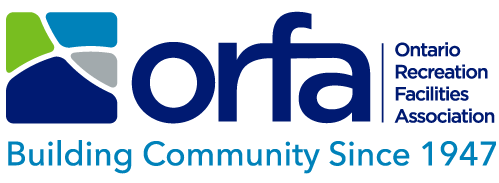- ORFA Home
- The Recreation Facility Profession
- ORFA News and Alerts
- Responding to Reg 565
ORFA News
September 18, 2018
Responding to Regulation 565: Public Pools Operational Changes
TORONTO, September 18, 2018 July 1, 2018 ushered in a revised Health Protection Promotion Act, R.R.O 1990 Regulation 565: Public Pools legislation. Although updated, the Regulation remains fixated on the original intent of public aquatic safety through proper water chemistry and standard safety practices. The focus in the new Regulation recognizes the changes in aquatic facility types and provides greater clarification on how pool owners can strive toward safe operations. The traditional definition of Class A & B pools remains unchanged, while the introduction of Class C pools provides improved direction on wading pools, water slides, splash/spray pads and public spa operation. Some shift is observed in water chemistry, as well as water testing and recording requirements. The per-bather make-up water calculation has also been reduced from 20-litres per-bather to 15-litres and should result in facility chemical and water cost savings, while at the same time reducing our environmental impact. Regulation 565, Section 6. (1) states, “every owner of a public pool or public spa shall designate an operator” while section 6. (2) states, “every operator shall be trained in public pool and public spa operation and maintenance, filtration systems, water chemistry and all relevant safety and emergency procedures”. Although there is no specific direction on how pool operators are to be trained, the minimum expectation is that they shall be deemed “competent” as defined in the Occupational Health and Safety Act. By way of a comparison, considering the pressure that the ice arena industry has faced recently related to three deaths at the Fernie Memorial Arena, BC - an operators ability to respond to an accident/incident does require a level of emergency preparedness. The ORFA continues to be active in designing industry leading aquatic accreditation that remains rooted in traditional pool operations while at the same time expanding the information into the other many water related responsibilities that Ontario recreation staff are increasingly responsible for. ORFA continues to work closely with the Public Services Health and Safety Association (PSHSA), who is funded by WSIB, to assist Ontario employers in their training objectives. The ORFA Certified Aquatic Technician (CAT) professional designation requires an individual to have obtained the ORFA/PSHSA Legal Awareness: Supervising in a Recreation Environment training course and is considered an important part of today's pool operator training. Combined with our training partnerships with the Canadian Red Cross and the world-recognized Certified Pool Operator (CPO) training course offered by the National Swimming Pool Foundation (NSPF) and the newly revised ORFA Aquatic Facility Operator course sets the foundation to an Ontario specific Certified Aquatic Technician (CAT) professional designation. These courses are a perfect balance of proven swimming pool operational professional development, risk/hazard awareness and legislative compliance obligations of both a recognized natatorium and non-traditional aquatic environments. The new Regulation also shifts away from a singled source life-guard training provider and gives pool owners more choice in meeting pool deck life-guard needs. Pool owners are reminded that they need to determine what operational experience a life guard should have if they have operational obligations. The ORFA believes that an internal investment in aquatic operations aligns perfectly with both our vision, “to be the leader in the recreation facility profession” and our mission, “to provide leadership in the development and delivery of innovative training and education programs, value-added services, and quality products for the benefit of the recreation facility profession”. For more information on ORFA aquatic training, professional designations and resources visit Certified Aquatic Technician (CAT) Regulation 565 - Q & A |
